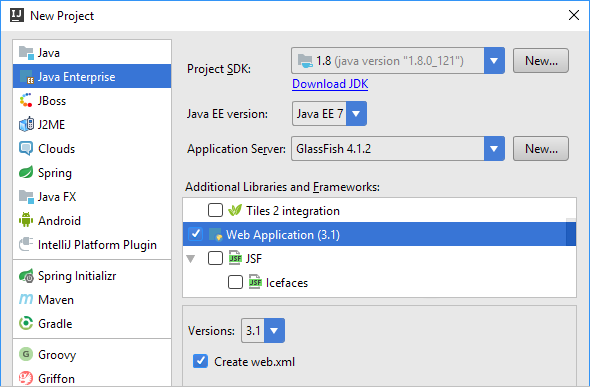Java Web Components For Mac

Introduction This document describes how to troubleshoot issues with Java 7 on Cisco AnyConnect Secure Mobility Client, Cisco Secure Desktop (CSD)/Cisco Hostscan, and clientless SSL VPN (WebVPN). Note: Cisco bug IDs marked as investigative are not restricted to the symptoms described. If you face issues with Java 7, ensure that you upgrade the AnyConnect client version to the latest client version or to at least the 3.1 maintenance release 3 version available on Cisco Connection Online (CCO). General Troubleshooting Run the in order to check if Java is supported on the browsers in use. If Java is enabled properly, review the Java console logs in order to analyze the problem. Windows This procedure describes how to enable the console logs in Windows:.
Open the Windows Control Panel, and search for Java. Double-click Java (the coffee cup icon). The Java Control Panel appears.
Click the Advanced tab. Expand Debugging, and select Enable tracing and Enable logging.
Expand Java console, and click Show console. Mac This procedure describes how to enable the console logs on a Mac:. Open System Preferences, and double-click the Java icon (coffee cup). The Java Control Panel appears.
Free Java Download For Mac
Click the Advanced tab. Under Java console, click Show console. Under Debugging, click Enable tracing and Enable logging. Specific Troubleshooting AnyConnect For AnyConnect-related issues, collect the as well as the Java console logs. Windows Cisco bug ID, 'IE crashes with Java 7 when 3.1.1 package is enabled on the ASA,' was a known issue, where Internet Explorer crashed when a WebLaunch was performed and AnyConnect 3.1 was enabled on the headend. This bug has been fixed. You might encounter issues when you use some versions of AnyConnect and Java 7 with Java apps.

For further information, see Cisco bug ID, 'Java App(s) Break when using AnyConnect 3.1.00495 or 3.1.02026 & Java v7.' Issues with Java 7 and IPv6 Socket Calls If AnyConnect does not connect even after you upgrade the Java Runtime Environment (JRE) to Java 7, or if a Java application is unable to connect over the VPN tunnel, review the Java console logs and look for these messages: java.net.SocketException: Permission denied: connect at java.net.DualStackPlainSocketImpl.waitForConnect(Native Method) at java.net.DualStackPlainSocketImpl.socketConnect(Unknown Source) These log entries indicate that the client/application makes IPv6 calls.
Install Java On Mac
One solution for this issue is to disable IPv6 (if it is not in use) on the Ethernet adapter and the AnyConnect Virtual Adapter (VA): A second solution is to configure Java to prefer IPv4 over IPv6.

As I pointed out some time ago, this code will grab MAC address of a Cisco VPN virtual adapter(which is a peace of software btw.). Thus, in a strict sense your statement “read the address regardless of the changes another program makes” applied to this particular peace of code is not correct. The only point I am trying to make here is that one should not blindly rely on this MAC address detection technique for sensitive things like identifying machines for software licensing purposes – it can be easily forged. MAC address is the least of your worries regarding privacy in the internet. Sender and receiver MAC addresses are only used inside of your “last hop” Ehternet LAN in the most typical scenario. Packets that you receive and send are identified by IP addresses (which will also often be not your direct LAN IP, but an IP of your router + NAT). Furthermore, MAC addresses will be discarded as soon as your packet leaves Ethernet transport network and other Layer 2 technology is used as they only make sense in this limited domain.
Java Web Tutorial
It is the task of your router Read more ».